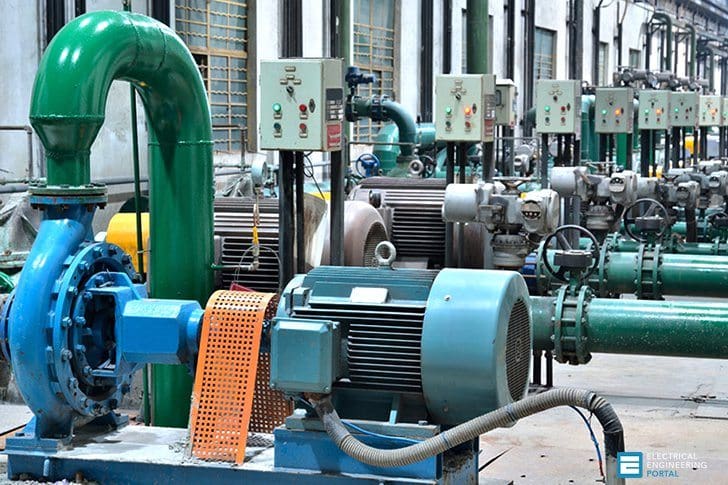How AC Induction Motors Unleash Optimal performance in industrial Applications?
AC induction motors play a pivotal role in powering industrial machinery, offering efficiency, reliability, and cost-effectiveness. Understanding their working principles, applications, advantages, challenges, and future trends is essential to grasp their impact on industrial performance.
Introduction to AC Induction Motors
AC induction motors are ubiquitous in industrial environments, converting electrical energy into mechanical energy to drive various machines. Their simplicity, robustness, and adaptability make them a preferred choice across industries.
Working Principle of AC Induction Motors
Induction Process
AC induction motors operate on the principle of electromagnetic induction. When an alternating current flows through the motor's stator windings, it generates a rotating magnetic field.
Rotating Magnetic Field
This rotating magnetic field induces currents in the rotor windings, causing it to rotate. The speed of rotation depends on the frequency of the AC power supply and the motor's design.
Types of AC Induction Motors
There are several types of AC induction motors, including squirrel cage and wound rotor motors, each suited for specific applications based on their design and performance characteristics.
Applications in Industrial Settings
AC induction motors find extensive use in various industrial applications:
- Pumping Systems: They power pumps for fluid transport in industries such as water treatment, oil and gas, and manufacturing.
- Conveyor Belts: AC motors drive conveyor belts in factories and warehouses, facilitating material handling and logistics.
- Fans and Blowers: They are used in HVAC systems and industrial ventilation for air circulation and temperature control.
- Compressors: AC induction motors drive compressors for gas compression in industries like refrigeration, air conditioning, and manufacturing processes.
Advantages of AC Induction Motors in Industrial Applications
Efficiency
AC induction motors are highly efficient, converting a large percentage of electrical input into mechanical output, reducing energy wastage and operational costs.
Reliability
They are robust and require minimal maintenance, ensuring continuous operation in demanding industrial environments with minimal downtime.
Cost-effectiveness
Compared to other motor types, AC induction motors offer a cost-effective solution for industrial power needs, providing a balance between performance and affordability.
Challenges and Solutions
Starting Torque
One challenge with AC induction motors is their lower starting torque, especially for heavy loads. Variable frequency drives (VFDs) and soft starters are employed to address this issue, providing controlled acceleration and torque.
Speed Control
AC induction motors traditionally operate at a constant speed based on the frequency of the power supply. However, advancements in motor control technologies, such as VFDs, enable precise speed control for enhanced process efficiency.
Energy Efficiency Measures
Industry regulations and sustainability goals drive the adoption of energy-efficient motors and systems. AC induction motor manufacturers are innovating with higher efficiency designs and integrated energy-saving features.
Future Trends and Innovations
The future of AC induction motors in industrial applications includes advancements in motor design, control systems, and integration with smart technologies. Predictive maintenance, real-time monitoring, and energy optimization will shape the next generation of motor-driven industrial processes.
In conclusion, AC induction motors are indispensable in unleashing performance across a wide range of industrial applications. Their efficiency, reliability, and adaptability continue to drive innovation and productivity in modern industries.




Comments
Post a Comment